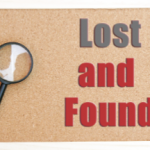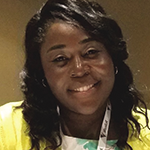Here’s a closer look at the center’s offerings:
Lupus Center of Excellence Weekly Clinic Conference
This weekly conference embraces a multidisciplinary team approach to manage complex patients and creates a unique training environment for rheumatology fellows. Residents, fellows, rheumatology attendings and other medical specialists (e.g., dermatologists, nephrologists, psychiatrists), study coordinators and social workers meet to discuss SLE patients seen in the clinic.
“Contributions from all of these disciplines allow us to implement the best program of care tailored for each patient,” Dr. Salmon says. In addition, “Issues of compliance, trust in the healthcare provider, lack of housing and inability to pay for care are discussed.”
Because a healthcare team’s beliefs, values, attitudes and judgments can sometimes conflict with those of the patient, a social work manager along with clinic staff use consultative practices to assess each patient’s concerns related to the impact of lupus, choice of treatments, psychosocial status and present active issues during the conference to guide physicians’ decisions. “Social workers assess patient barriers related to culture, mental health, treatment adherence, insurance status, language and education and help the team develop approaches to overcome impediments,” Dr. Salmon says.
SLE Workshops, Including Lupus Research Presentations

HSS partnered with Project Sunshine to hold the annual Charla de Lupus Girls Night Out/Parents Spa Day on April 7, 2016, for young women with lupus and their parents and caregivers. During the event, which was hosted by the Charla de Lupus (Lupus Chat) Program at HSS, about 20 patients enjoyed a night of fun picking out prom dresses and getting their hair and makeup done. Miss USA 2015, Olivia Jordan, joined HSS and Project Sunshine staff to help the girls.
Photo courtesy of Hospital for Special Surgery.
Monthly presentations on topics of interest to patients are followed by a support group session. For example, during a presentation about lupus research, attendees learned about HSS’ innovative studies to understand their disease or test new treatments. “Patients gain an understanding of the different types of studies (e.g., clinical trials vs. registries) and can determine which, if any, are right for them to explore eligibility and participate in,” Dr. Salmon says. “Guided by social workers, and in the presence of basic and clinical investigators, patients ask questions and share their experiences. This forum has the potential to empower patients to help themselves and participate in research studies.
“Similarly, programs about sun protection, nutrition and reproductive health stimulate discussion among patients and provide a more trusted environment to educate them.”
Charla de Lupus (Lupus Chat)
This program reaches underserved communities and provides health support and education via a bilingual national telephone line and at four hospital clinics throughout New York City. “From our needs assessment, we found a gap in reaching minorities and younger patients (ages 13 to 35),” Ms. Rose says.


